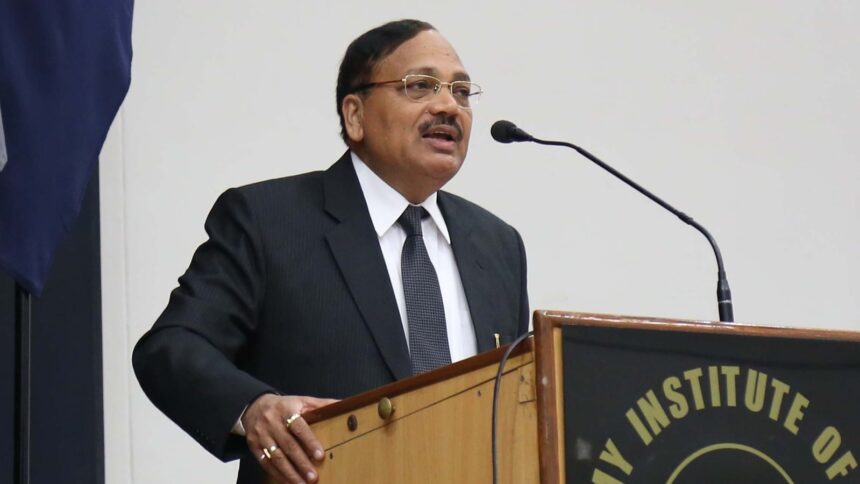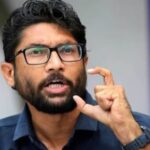Strongly defending the collegium system of judicial appointments, Supreme Court judge Justice Surya Kant said on Saturday that, “despite its imperfections, it serves as a crucial institutional safeguard … preserving the Judiciary’s autonomy.”
Speaking at Seattle University on the topic “The Quiet Sentinel: Courts, Democracy, and the Dialogue Across Borders,” Justice Kant noted that the collegium “significantly limits interference by the Executive and Legislature, thereby preserving the Judiciary’s autonomy and insulating judges from extraneous pressures that could otherwise compromise their impartiality.”
He acknowledged that the system “has been subject to sustained criticism—particularly regarding the opacity of its deliberative processes and the lack of publicly articulated criteria—but recent efforts by the Supreme Court signal a growing commitment to enhancing transparency and public confidence in it.”
Referring to proactive judicial interventions that advance constitutional compassion, he asked in his June 4 address, “How far can courts go in shaping policy?” and “Is judicial creativity a virtue or a vice?”
“The answer, I believe, lies in intent and integrity. When courts act to empower the powerless, grounded in constitutional text and moral clarity, they do not usurp democracy—they deepen it,” he said.
Justice Kant conceded that the judiciary “has not remained impervious to criticism that at times it breaches the fine line between judicial activism and judicial overreach” and added that “in recent years, there has been a discernible shift toward greater institutional self-restraint in select domains. The Court has increasingly sought to nudge rather than command, and to engage with other branches of government in efforts to increase dialogic remedies. This evolving balance reflects an awareness that judicial authority is most enduring when it is exercised with a sense of humility—when the Court is seen not as an omnipotent arbiter but as a co-traveller in the democratic journey, grounded in constitutional values.”
He described the judiciary as “the sentinel of constitutional morality” and said it “has been instrumental in shaping this very democracy’s moral spine.”
Recalling past challenges, Justice Kant observed that “the Indian judiciary, too, traversed periods of profound trial and transformation. Particularly during the Emergency, the Court grappled with serious challenges to its independence and, at times, exhibited troubling deference to executive power. Yet, this phase of institutional strain gave way to a renewed judicial consciousness.”
He added that “the judiciary’s evolving relationship with its own independence lies at the very heart of how India’s vast, pluralistic democracy continues to function with remarkable cohesion. It is not merely the existence of judicial independence that is noteworthy, but rather the degree and contours of that independence—how it is asserted, negotiated, and exercised—that renders the Indian experience particularly distinctive within the global constitutional landscape.”
On the role of courts in a democracy, he said, “constitutional democracy is … a system where majorities are checked, where minorities are protected, and where principles cannot be sacrificed at the altar of popularity,” and “in such a system, courts cannot function as mere referees.”
He stressed, “in a democracy as vast and diverse as India’s, it is only when the judiciary wears its power lightly, and its conscience visibly, that it can remain not only the last word, but also a trusted voice among many in our collective democratic journey.”
“Judiciary may not be the most visible arm of the state, it may not command battalions or shape budgets, but it performs a task more difficult: it keeps alive the promise of justice. In India, this task has often been thankless, occasionally triumphant, and always essential. The judiciary is not a saviour; it is a sentinel. It does not march. It watches. And when necessary, it speaks—not to please, but to preserve.”
Earlier, during a visit to the Washington State Supreme Court’s Temple of Justice in Olympia on June 3, Justice Kant highlighted the SC’s defence of free speech rights, noting that “pre-censorship and vague notions of public order cannot trump the right to free expression,” and adding, “these are not merely legal precedents; they are constitutional declarations—that democracy without dissent is a contradiction, and that silence in the face of injustice is not neutrality, but complicity.”
Drawing parallels between the Indian and American judiciaries, he said, “in both countries, the Judiciary has consistently pushed back against the temptation to suppress dissent under misguided and deceptive notions that the Executive may hold … Both our systems were designed not to trust power blindly, but to restrain it.”
At a fireside chat at Corporation headquarters on June 6, Justice Kant touched on the rise of technology such as artificial intelligence in the judicial process. He said he was “firmly convinced that any contemplation of AI must be guided by a deep moral compass. Shaping the future demands more than innovation—it calls for an unwavering adherence to foundational values. Transparency, equity, responsibility, and respect for human dignity must not be afterthoughts, but the pillars upon which all technological advancement rests.”
He warned that “technology, if left unchecked, can reflect and reinforce societal inequities. AI is not a perfect technology and it can perhaps never replace the human element that the entire Rawlsian theory of justice hinges on,” and added, “technology must remain subordinate to our higher commitments to fairness, equity, and human dignity” and “must adapt to the lived realities of the people it seeks to serve.”
He reported from the Delhi High Court and the Supreme Court of India during his first stint with The Indian Express in 2005-2006. Currently, in his second stint with The Indian Express, he reports from the Supreme Court and writes on topics related to law and the administration of justice. Legal reporting is his forte though he has extensive experience in political and community reporting too, having spent a decade as Kerala state correspondent, The Times of India and The Telegraph. He is a stickler for facts and has several impactful stories to his credit.








